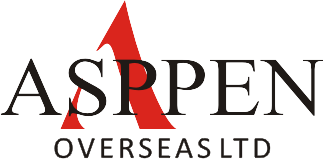New Zealand offers various immigration pathways for individuals looking to live, work, study, or settle permanently in the country. Here's an overview of visa types, eligibility criteria, the application process, costs, and tips for immigrating to New Zealand:
Visa Types:
- Skilled Migrant Category (SMC):
- For skilled workers who have the qualifications, skills, and experience New Zealand needs. Applicants are selected based on a points system.
- Essential Skills Work Visa:
- Allows skilled workers to work in New Zealand for an employer who can't find a suitable candidate locally.
- Family Category Visas:
- Including partnership visas for spouses or partners of New Zealand citizens or residents, parent visas, and dependent child visas.
- Study Visas:
- For international students enrolled in a course of study at a New Zealand educational institution.
- Entrepreneur Work Visa:
- For individuals who want to buy or establish a business in New Zealand.
- Investor Visas:
- Including the Investor 1 and Investor 2 categories for individuals who wish to invest a significant amount of funds in New Zealand.
- Residence from Work Visa:
- For individuals already working in New Zealand who wish to apply for residence.
Eligibility Criteria:
- Age: There is no specific age limit for most visa categories, although certain criteria may be influenced by age.
- English Proficiency: Many visa categories require applicants to demonstrate English language proficiency through tests like IELTS or provide evidence of English-medium education or work experience.
- Education: Skilled migration visas often require a recognized qualification equivalent to a New Zealand qualification.
- Skills and Work Experience: Skilled migrant applicants are assessed based on factors such as age, work experience, qualifications, and job offers.
- Spouse/Partner: Some visa categories allow applicants to include their spouse or partner in their application.
Visa Process:
- Expression of Interest (EOI):
- Skilled migrant applicants usually start by submitting an EOI, which includes details of their qualifications, work experience, and other factors.
- If selected from the EOI pool, applicants may receive an Invitation to Apply (ITA) for a visa.
- Application Submission:
- Applicants submit a complete visa application along with supporting documents, which may include medical and police certificates.
- Health and Character Checks:
- All visa applicants must undergo health and character assessments.
- Decision:
- Once processed, applicants will receive a decision on their visa application.
Costs:
- Visa application fees vary depending on the type of visa being applied for and the applicant's circumstances.
- Additional costs may include health assessments, police checks, and immigration advisor fees if using one.
Tips:
- Research Visa Options:
- Explore the various visa categories and choose the one that best fits your qualifications, skills, and circumstances.
- Language Preparation:
- Improve your English language skills if needed to meet visa requirements and adapt more easily to life in New Zealand.
- Skill Assessment:
- Have your skills and qualifications assessed to ensure they meet New Zealand standards, particularly for skilled migration visas.
- Job Market Research:
- Research job opportunities and labor market trends in New Zealand to understand where your skills are in demand.
- Engage with Communities:
- Connect with New Zealand communities, expatriate groups, or online forums to gather insights and advice from those who have already made the move.
By understanding the visa options, eligibility criteria, and application process, prospective immigrants can make informed decisions and improve their chances of successfully immigrating to New Zealand.

